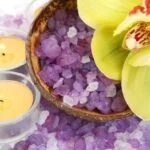Clinical aromatherapy programs have gained popularity in recent years as people seek alternative and holistic approaches to healthcare. In this section, we will explore what clinical aromatherapy is, the benefits of enrolling in a program, and the career opportunities available to graduates.
Clinical aromatherapy is a practice that utilizes essential oils and aromatic plant extracts to promote physical, emotional, and spiritual well-being. These programs provide an in-depth understanding of how essential oils can be used to support overall health and wellness. Students learn about the therapeutic properties of different essential oils and how they can be applied in various healthcare settings.
Individuals who undergo clinical aromatherapy training may find themselves better equipped to address a wide range of health issues, including stress management, pain relief, and improving mood and cognitive function. Additionally, these programs offer a deeper insight into the science behind aromatherapy, which supports its efficacy as a complementary therapy.
As we delve deeper into this topic, we will explore the science behind aromatherapy as well as accredited clinical aromatherapy programs that offer hands-on training and clinical experience. We will also hear from successful graduates who have made a difference through their practice of clinical aromatherapy.
The Benefits of Clinical Aromatherapy Programs
Clinical aromatherapy programs offer a range of benefits for individuals looking to pursue a career in this field. These programs provide students with comprehensive knowledge and practical skills that are essential for becoming successful clinical aromatherapists. One of the key benefits of enrolling in these programs is gaining a deep understanding of how essential oils can be used to promote physical, emotional, and mental well-being.
Students in clinical aromatherapy programs also have the opportunity to develop strong critical thinking and problem-solving skills, as they learn to create customized blends of essential oils that address specific health concerns. Additionally, these programs often include coursework on topics such as anatomy, physiology, and pharmacology, which are crucial for understanding the scientific basis behind the therapeutic effects of essential oils.
Furthermore, completing a clinical aromatherapy program from an accredited institution can lead to greater job opportunities and career advancement. Graduates may find employment in settings such as hospitals, wellness centers, spas, and holistic health practices. The demand for qualified clinical aromatherapists is expected to continue growing as more people seek alternative and complementary approaches to healthcare. Therefore, obtaining a formal education through a reputable program can give graduates a competitive edge in the job market.
| Benefit | Details |
|---|---|
| Comprehensive Knowledge | Clinical aromatherapy programs offer students comprehensive knowledge about essential oils and their uses. |
| Critical Thinking Skills | Students in these programs develop strong critical thinking skills by creating customized blends based on specific health needs. |
| Career Opportunities | Completing an accredited program can lead to greater job opportunities in various healthcare settings. |
The Science Behind Aromatherapy
Research into the science behind aromatherapy has shown that essential oils contain compounds that can interact with the body in various ways. For example, some essential oils have been found to have anti-inflammatory and antimicrobial properties, while others can affect neurotransmitters in the brain, leading to changes in mood and emotions. The chemical composition of different essential oils determines their specific therapeutic properties and potential uses.
For individuals interested in delving deeper into the science behind aromatherapy, enrolling in accredited clinical aromatherapy programs is a great way to gain a comprehensive understanding of this field. These programs often cover topics such as biochemistry, anatomy and physiology, pharmacology, and the principles of holistic health. Students also learn about essential oil safety, proper usage guidelines, and how to create personalized aromatherapy blends for specific needs.
| Key Points | Data |
|---|---|
| Beneficial effects of essential oils | Reduction of stress and anxiety; pain relief; relaxation; treatment aid for health conditions |
| Chemical composition | Determines specific therapeutic properties and potential uses |
| Clinical aromatherapy programs covering | Biochemistry, anatomy and physiology, pharmacology, principles of holistic health |
Accredited Clinical Aromatherapy Programs
When looking for accredited clinical aromatherapy programs, it’s important to consider several key factors to ensure you receive a high-quality education and training. Here are some things to look for when researching potential programs:
- Accreditation: One of the most important factors to consider when choosing a clinical aromatherapy program is accreditation. Look for programs that are recognized by reputable organizations such as the Alliance of International Aromatherapists (AIA) or the National Association for Holistic Aromatherapy (NAHA). Accredited programs have met specific standards of quality and professionalism, ensuring that you receive a comprehensive education in aromatherapy.
- Curriculum: Consider the curriculum offered by each program. Look for courses that cover a wide range of topics related to clinical aromatherapy, including essential oil safety, therapeutic uses of essential oils, anatomy and physiology, and practical application techniques. A well-rounded curriculum will provide you with the knowledge and skills necessary to succeed in the field.
- Hands-On Training: Practical experience is crucial in developing your skills as an aromatherapist. Seek out programs that offer hands-on training opportunities, such as internships, practicums, or clinical experience components. This will allow you to apply what you’ve learned in a real-world setting under the guidance of experienced professionals.
In addition to these key considerations, it’s also important to research the faculty members involved in each program, as well as any additional resources or support services available to students. By carefully examining these factors, you can select a clinical aromatherapy program that meets your educational and career goals.
Remember that while searching for accredited clinical aromatherapy programs is important, it’s also essential to find a program that aligns with your own values and interests within the field. With careful consideration and research into various program options, you can find an accredited clinical aromatherapy program that will provide you with a solid foundation for a successful career in this growing field.
Career Opportunities for Clinical Aromatherapy Graduates
Upon completing a clinical aromatherapy program, graduates can pursue various career opportunities in the field of holistic health and wellness. The knowledge and skills acquired through these programs open the door to diverse roles that cater to individuals seeking alternative and natural healthcare options.
Private Practice
Many graduates of clinical aromatherapy programs choose to start their private practice as aromatherapists. They can offer personalized aromatherapy consultations, create custom essential oil blends, and provide aromatherapy treatments for clients seeking relief from stress, anxiety, pain, or other health conditions. Operating a private practice allows graduates to work directly with clients and tailor their services to meet individual needs.
Healthcare Settings
Hospitals, clinics, and wellness centers are increasingly recognizing the benefits of integrating clinical aromatherapy into patient care. Graduates of accredited clinical aromatherapy programs may find opportunities to work in collaboration with healthcare professionals to develop and implement aromatherapy protocols for patients. They may also conduct educational workshops for healthcare staff on the safe and effective use of essential oils in a clinical setting.
Product Development
Another career path for clinical aromatherapy graduates is product development within the natural health industry. This could involve creating new essential oil blends, formulating natural skincare products, or contributing to research and development initiatives aimed at expanding the use of essential oils in various wellness products. Additionally, graduates may work with companies that specialize in producing high-quality essential oils for therapeutic use.
Ultimately, graduates of clinical aromatherapy programs have the opportunity to make a meaningful impact on people’s lives by promoting holistic well-being through the thoughtful application of essential oils and aromatherapy techniques.
The Role of Essential Oils in Clinical Aromatherapy
Clinical aromatherapy programs place a strong emphasis on the use of essential oils as a key component in holistic healing. Essential oils are highly concentrated plant extracts that have been used for centuries for their therapeutic properties. In clinical aromatherapy, essential oils are utilized to promote physical, emotional, and mental well-being. These oils are often administered through inhalation, topical application, or ingestion under the guidance of a trained professional.
The Science Behind Essential Oils
The effectiveness of essential oils in clinical aromatherapy can be attributed to their chemical composition. Each oil contains various compounds that interact with the body’s physiology, including the nervous system, endocrine system, and immune system. For example, lavender essential oil contains linalool and linalyl acetate, which have been shown to have calming and sedative effects when inhaled or applied topically. Similarly, peppermint essential oil contains menthol, which has analgesic and anti-inflammatory properties.
Utilizing Essential Oils in Clinical Settings
In clinical aromatherapy programs, students learn how to properly select and administer essential oils based on individual client needs and health conditions. They also study the potential risks and contraindications associated with different oils to ensure safe and effective practice. Through hands-on training and experiential learning opportunities, students gain insight into creating tailored blends of essential oils for specific therapeutic purposes.
As the demand for natural healthcare alternatives continues to grow, the role of essential oils in clinical aromatherapy has become increasingly recognized within mainstream healthcare settings. Graduates of accredited clinical aromatherapy programs are equipped with the knowledge and skills needed to integrate essential oil therapy into various healthcare environments while upholding ethical standards and best practices.
Hands-on Training and Clinical Experience in Aromatherapy Programs
Clinical aromatherapy programs often emphasize the importance of hands-on training and clinical experience to provide students with the practical skills and knowledge needed in this field. Here are some key aspects of hands-on training and clinical experience in aromatherapy programs:
- Practical Application: Students in clinical aromatherapy programs have the opportunity to learn how to properly use essential oils, create blends, and apply them in a clinical setting. This hands-on experience allows them to gain confidence in their abilities and develop a deeper understanding of the effects of various essential oils on the body and mind.
- Clinical Internships: Many accredited clinical aromatherapy programs offer internships or externships in healthcare facilities, hospices, wellness centers, or other relevant settings. This allows students to work directly with patients under the supervision of experienced professionals, giving them valuable real-world experience and insight into how aromatherapy is used in a clinical context.
- Case Studies and Research Projects: Hands-on training also involves conducting case studies, research projects, or practical assessments related to aromatherapy. This enables students to apply their theoretical knowledge to real-life situations, analyze outcomes, and contribute to the growing body of evidence supporting the efficacy of aromatherapy in healthcare.
By incorporating hands-on training and clinical experience into their curriculum, reputable aromatherapy programs prepare students for successful careers in this specialized field while ensuring that they are capable of providing safe and effective care to clients or patients.
Success Stories
In conclusion, clinical aromatherapy programs have proven to be a valuable asset in the field of healthcare and wellness. As evidenced by the success stories of graduates, these programs have made a significant difference in the lives of both practitioners and their clients. Through hands-on training and clinical experience, individuals are equipped with the knowledge and skills to effectively utilize essential oils for therapeutic purposes.
The science behind aromatherapy provides a solid foundation for understanding the benefits of this practice. By choosing accredited clinical aromatherapy programs that prioritize evidence-based approaches, students can ensure they are receiving quality education that will prepare them for successful careers in the field. Many graduates have gone on to find fulfilling career opportunities in various healthcare settings, as well as in private practice and holistic wellness centers.
As more research continues to support the efficacy of aromatherapy, it is clear that this modality plays a valuable role in promoting overall well-being. The growing demand for qualified aromatherapists underscores the importance of pursuing reputable clinical aromatherapy programs. By doing so, individuals not only enhance their own career prospects but also contribute to improving the health and wellness of others through the use of essential oils.
Frequently Asked Questions
How Do I Become a Certified Clinical Aromatherapist?
To become a certified clinical aromatherapist, one typically needs to complete a comprehensive training program that covers topics like essential oil safety, chemistry, and therapeutic properties. Many programs also require practical experience and exams to obtain certification.
What Does a Clinical Aromatherapist Do?
A clinical aromatherapist uses essential oils to support wellness and treat various physical and emotional conditions. They may conduct assessments, create customized blends for clients, and provide education on safe usage of essential oils. Clinical aromatherapists often work in healthcare settings or private practice.
What Qualifications Do You Need to Practice Aromatherapy?
The qualifications needed to practice aromatherapy vary by location, but generally, a formal education in aromatherapy from a reputable institution is required. Some regions may also require licensure or certification. Additionally, strong knowledge of essential oil safety and application techniques is crucial for practicing aromatherapy safely and effectively.

Are you looking for a natural way to improve your health and wellbeing?
If so, aromatherapy may be the answer for you.





